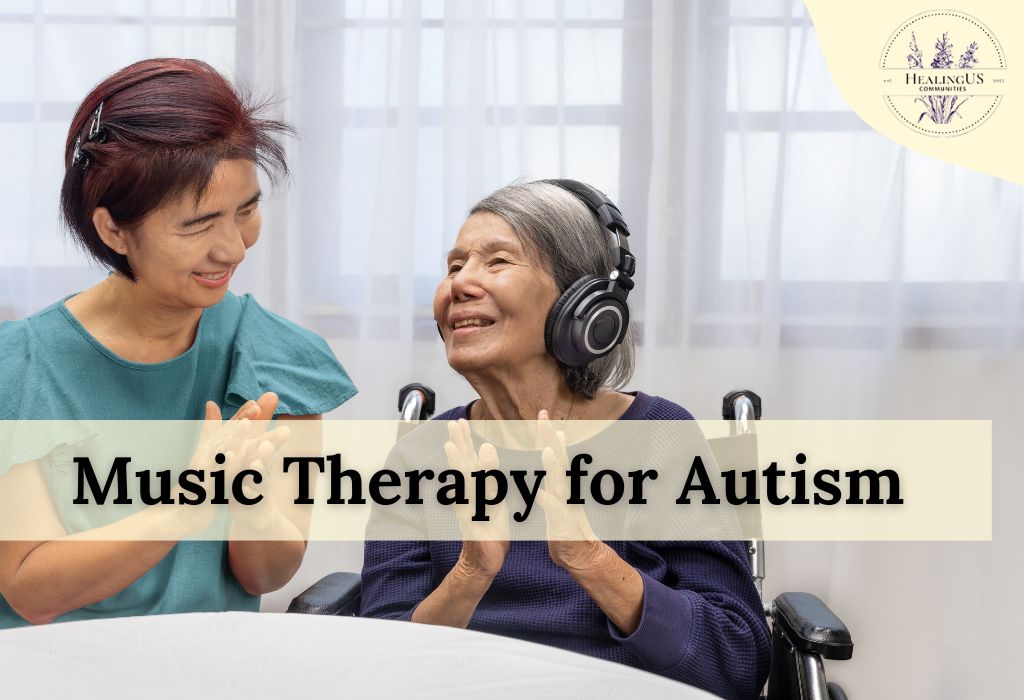Music therapy is an innovative and increasingly popular approach to enhancing well-being and facilitating healing. It employs music as a therapeutic tool to address physical, emotional, cognitive, and social needs.
Accredited music therapy programs ensure that practitioners are properly trained and qualified to deliver effective treatments. In this blog, we will delve into the world of music therapy, explore its impact on the brain, and highlight its benefits, particularly in the context of autism.
By understanding how music therapy for autism works, we can appreciate its profound effects on individuals with this condition.
What is Music Therapy?
Music therapy is a clinical practice that uses music to achieve specific therapeutic goals. This therapy is provided by trained professionals who have completed accredited music therapy programs. These programs teach therapists how to use music in various ways, such as listening, singing, playing instruments, and composing music.
The therapeutic use of music can improve mental health, reduce stress, relieve pain, express emotions, enhance memory, improve communication, and aid physical rehabilitation. Music therapy is customized to each person’s needs, making it an effective treatment for many conditions, including autism.
What is Autism?
Autism Spectrum Disorder (ASD) is a developmental state that affects communication, behavior, and social interactions. Symptoms vary widely but often include difficulties with social skills, repetitive behaviors, and challenges in speech and nonverbal communication. People with autism may also have unique strengths, like exceptional attention to detail and strong visual and auditory learning skills.
ASD is called a spectrum disorder because it affects each person differently. Some people with autism need a lot of support, while others can live independently and succeed in various fields. Music therapy for autism is tailored to meet the specific needs of individuals on the spectrum, helping to improve their quality of life.
Can Music Therapy Affect Our Brains?
Music therapy greatly affects the brain. Research shows that music can activate brain areas related to emotion, memory, and motor skills, helping the brain form new connections. For people with autism, music therapy can stimulate brain areas involved in communication, social interaction, and emotional regulation.
Studies using functional MRI (fMRI) have shown that music therapy can synchronize brain activity between therapists and clients, promoting empathy and emotional connection. This can lead to better therapy results and improved well-being. By engaging multiple brain regions at once, music therapy for autism helps individuals process information more effectively and develop important skills.
Benefits of Music Therapy for Autism
Music therapy offers multiple benefits for individuals with autism. Here are some of the critical advantages:
- Improved Communication Skills: Music therapy can help individuals with autism develop and enhance their verbal and nonverbal communication skills. Through singing, playing instruments, and musical games, they can practice expressing themselves and understanding others.
- Enhanced Social Interaction: Music therapy sessions promote social interaction and cooperation. Group activities like playing in an ensemble and singing help people with autism interact with others and build meaningful relationships.
- Emotional Regulation: Music therapy helps individuals with autism handle their emotions by providing a structured and secure environment to explore and express their feelings. The therapeutic use of music can reduce anxiety, improve mood, and increase emotional stability.
- Sensory Integration: Many people with autism have sensory processing issues. Music therapy helps by providing a multisensory experience that engages hearing, sight, and touch, making it easier for them to process sensory information.
- Behavioral Improvements: Music therapy can improve behavior. Structured musical activities offer predictability and routine, which can reduce challenging behaviors and increase attention and focus.
- Cognitive Development: Music therapy can boost cognitive skills like memory, attention, and problem-solving. Musical activities help by making individuals remember lyrics, follow rhythms and make decisions, which strengthens cognitive abilities.
- Motor Skills Development: Playing instruments and moving to music can improve motor skills. Music therapy for autism includes physical movement, helping individuals develop better coordination and control.
- Self-Esteem and Confidence: Reaching goals in music therapy can boost self-esteem and confidence. Learning to play an instrument, sing a song, or join a musical performance can give a sense of accomplishment and pride.
FAQs
Que: What is music therapy for autism?
Ans: Music therapy for autism uses music to help people with Autism Spectrum Disorder (ASD). It includes different musical activities to improve communication, social interaction, emotional control, and other important skills.
Que: How does music therapy benefit individuals with autism?
Ans: Music therapy helps people with autism by improving communication, social interaction, emotional control, sensory processing, behavior, cognitive skills, motor skills, and self-esteem.
Que: How long does it take to see results from music therapy for autism?
Ans: The time to see results from music therapy varies. Some people improve after a few sessions, while others need several months. Progress depends on the person’s starting abilities and therapy goals.
Que: Are there any risks associated with music therapy for autism?
Ans: Music therapy is safe and non-invasive. It’s important to work with a qualified music therapist who can customize the therapy to the person’s needs and avoid overstimulation or discomfort.
Que: How can I find an accredited music therapy program?
Ans: To find an accredited music therapy program, check with professional organizations like the American Music Therapy Association (AMTA). They offer directories of qualified music therapists and accredited programs.
Conclusion
Accredited music therapy programs can greatly enhance well-being and support healing, especially for those with autism. Music therapy helps improve communication, social interaction, emotional regulation, and overall quality of life by leveraging the therapeutic effects of music on the brain.
The benefits of music therapy for autism are extensive, making it a powerful tool for growth and development. With personalized and evidence-based methods, it helps promote healing and a better future for those on the autism spectrum.
Reach out to HealingUS for further support to enhance your well-being and facilitate healing.



